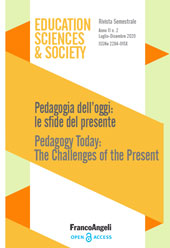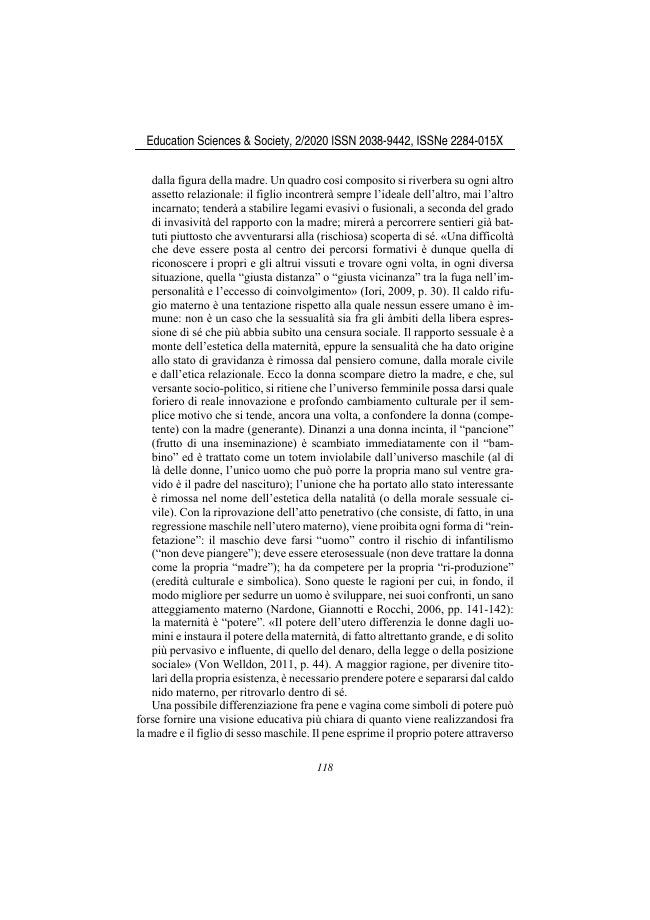Su alcuni nodi problematici di ambito familiare
P. 107-128
A muovere da alcuni assunti-chiave della pedagogia sociale e della famiglia,l'articolo si concentra sui problemi di natura relazionale che possono rinvenirsiall'interno delle compagini domestiche, aprendo a ulteriori piste di ricerca divalore e importanza emergenziali. Dapprima, è analizzato il sottosistema fraternoe/o sororale nelle ricadute evidenti che il modello di coppia coniugale incarnaagli occhi dei figli, sino a fondare una o più “sottofamiglie” interne alsistema familiare nella sua complessità globale. Successivamente, si prende inconsiderazione il peculiare rapporto che la madre è solita intrattenere con i figlidi sesso maschile, nel tentativo di argomentare le ragioni del maggiore investimentoemotivo della madre medesima qualora la prole, in quanto sessualmentedifferente da lei, testimoni, a maggior ragione, la sua onnipotenza generativa.
Infine, l'attenzione dell'autore si sposta su una modalità relazionale di marcapaterna poco indagata in seno al sapere pedagogico contemporaneo, forse in ragionedella tenerezza dei nuovi padri: il residuo patriarcale della competizionefra padre e figlio, che si tramuta, qualora il padre sia di giovane età, in una sortadi ideologia amicale, altrettanto tirannica rispetto alla relazione austera e autoritariache lasciava il figlio, di fatto, orfano di padre [Testo dell'editore]
Moving on from some key assumptions of social and family pedagogy, thearticle focuses on the relational problems that can be found within domesticteams, opening up to further research paths of emergency value and importance.Firstly, the fraternal and/or sisterly subsystem is analyzed in the evident effectsthat the conjugal couple model embodies in the eyes of the children, untilfounding one or more “subfamilies” internal to the family system in its globalcomplexity. Subsequently, the peculiar relationship the mother is used to havewith male children is taken into consideration, in an attempt to argue the reasonsfor the greatest emotional investment of the mother, when the offspring – as sexually different from her – witness (once more) her generative omnipotence.
Finally, the author's attention shifts to a fatherly relational modality maybe littleinvestigated in the context of contemporary pedagogical knowledge, perhapsbecause of the tenderness of new fathers: the patriarchal residue of thecompetition between father and son, which is transformed – if the father is young– in a sort of friendly ideology, just as tyrannical as the austere and authoritarianrelationship that (during the patriarchy) left his son fatherless. [Publisher's text]
Forma parte de
Education Sciences & Society : 2, 2020-
Artículos del mismo número (disponibles individualmente)
-
Información
Código DOI: 10.3280/ess2-2020oa9641
ISSN: 2038-9442
KEYWORDS
- Famiglia, pedagogia, educazione, approccio sistemico-relazionale,ricerca educativa
- Family, pedagogy, education, systemic-relational approach, educational research



